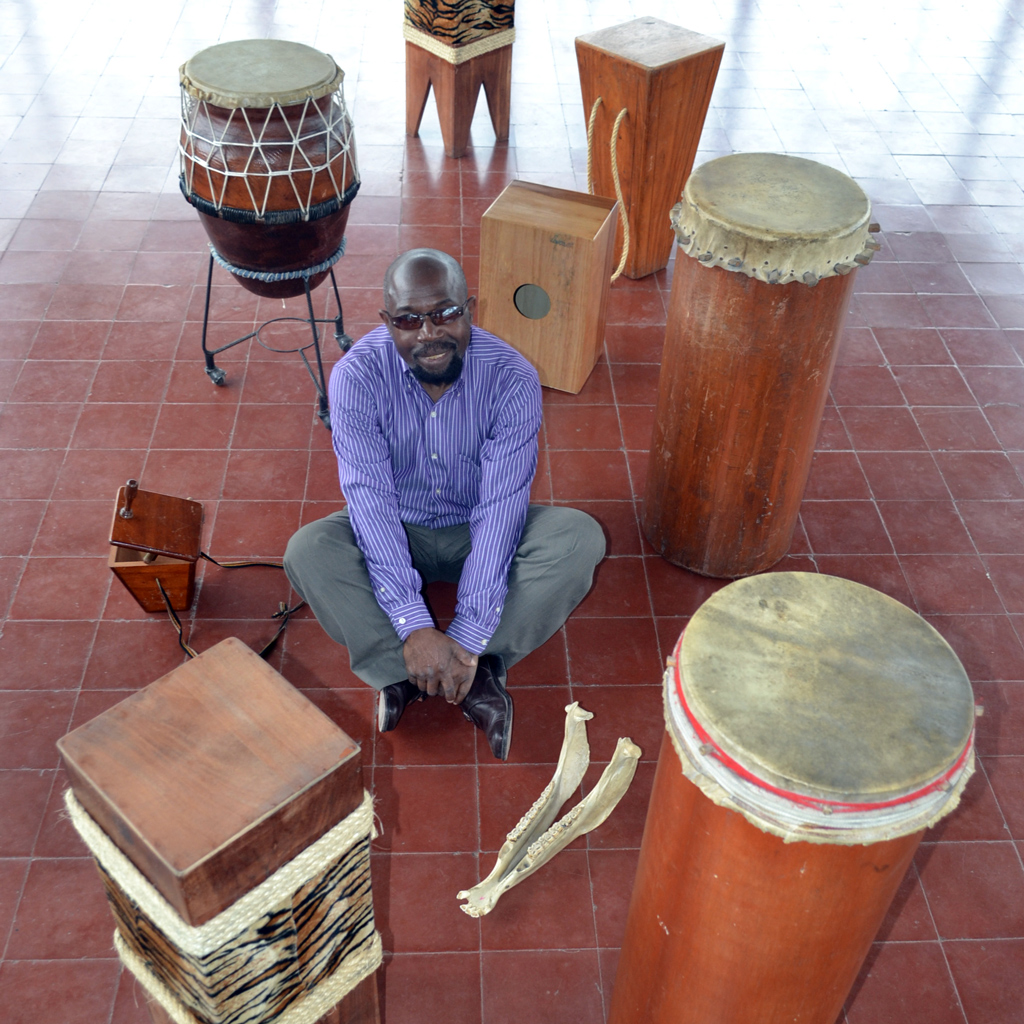Afro-Peruvian percussionist Lalo Izquierdo and Bolivian musician Oscar Reynolds collaborated with one another, with the ensemble Karumanta, and with the California Academy of Sciences’ Traditional Arts Program to create new compositions that combined Bolivian Indian and Afro-Andean music. Lalo Izquierdo also choreographed dances to the music. The project culminated with four free performances and a 20-minute educational videotape.
Peru and Bolivia share a strong African-influenced musical repertoire resulting from the presence of slaves brought to the New World by the Spanish conquistadores. In the Andean region of Lake Titicaca, bordering both Peru and Bolivia, African slaves worked in the silver and gold mines. Here, the musical traditions of Africa took root and developed into a distinct regional genre called tundique. Later other hybrid styles combined African percussion with the Quechua Indian instruments. Izquierdo and Reynolds took this fusion of musical styles a step further, creating contemporary compositions that paid homage to the co-existing Indian and African cultures.
At the time the grant was awarded, Lalo Izquierdo had been performing cajón (box drum) with Oscar Reynolds and Karumanta for three years. As a founding member of the Afro-Peruvian cultural association Peru Negro, Izquierdo had traveled the world promoting black Peruvian culture. Bolivian-born Oscar Reynolds had composed and performed Andean music extensively in the Bay Area, playing Andean flute, panpipes, and guitar.
The California Academy of Sciences provides residents and visitors opportunities to learn about the natural sciences and human cultures in creative and stimulating ways. Its Traditional Arts Program (TAP) offered local ethnic groups a venue for interpreting their cultural heritage to museum audiences through presentations of music, dance, crafts, and theater.

